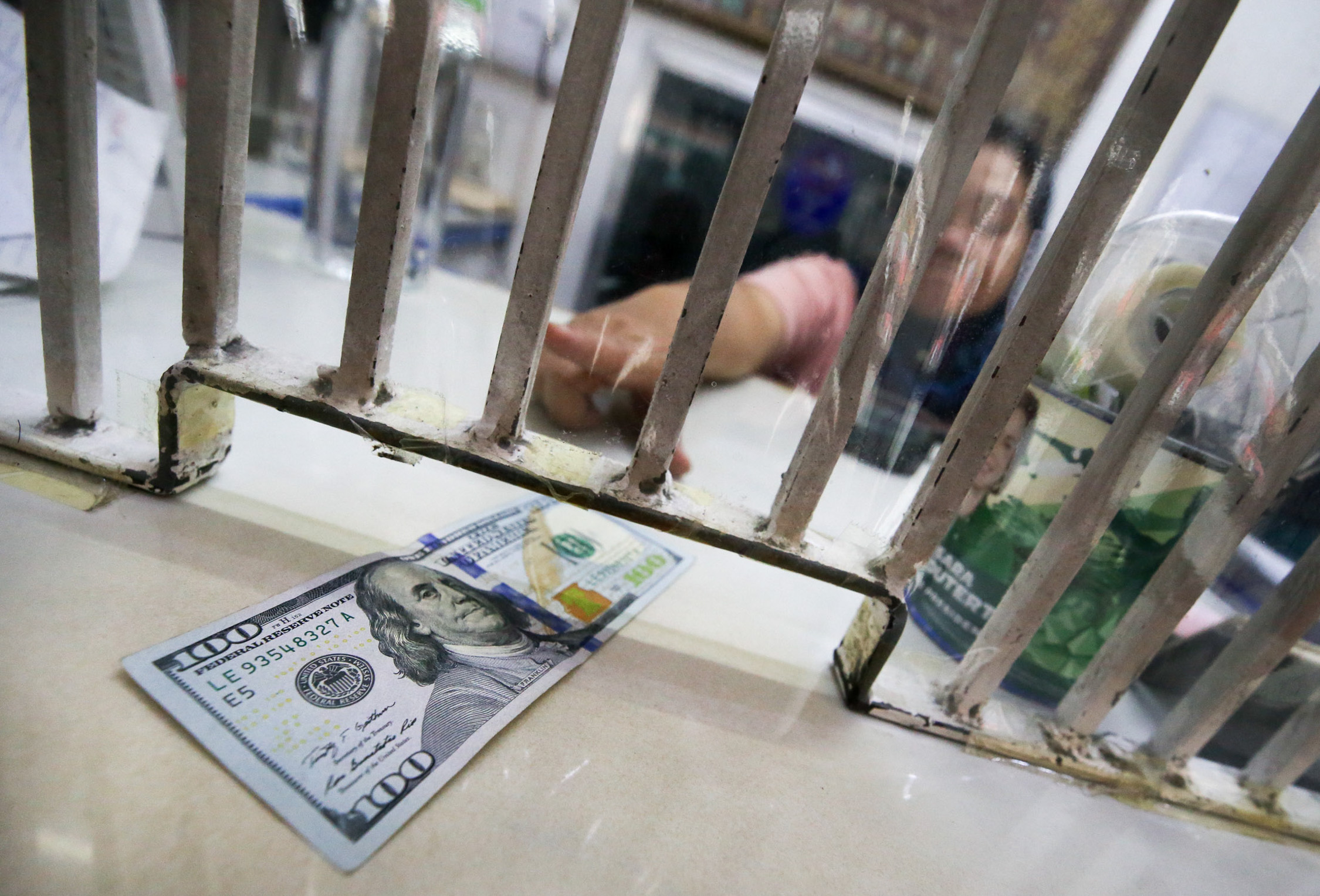
FILE PHOTO: An employee at a money exchange shop on A. Mabini Street in Manila accepts a hundred-dollar bill from a customer so it can be converted into pesos. On Tuesday, July 12, 2022, the Philippine peso slumped further as it closed at 56.37 against the US dollar. Photo by LYN RILLON / Philippine Daily Inquirer)
MANILA, Philippines — The Philippine currency plunged further on Tuesday, closing at 56.37 against the greenback, according to the foreign exchange summary of the Bank Association of the Philippines (BAP).
This puts the local currency at its weakest since Monday when the peso closed at 55.979 against the US dollar.
The Philippine peso’s further devaluation would make imports more expensive, a setback that would hamper the country’s economic recovery in light of the COVID-19 pandemic and skyrocketing prices of petroleum products. The Philippines is a net importer of oil.
READ: Peso slips as yawning trade gap seen to persist
International analysts earlier said the Philippine peso may become one of the worst-performing Asian currencies from 2022 to 2024 as some predicted it to depreciate up to P55 against the US dollar by 2023 and 2024.
The local currency’s slump came on the heels of the country’s worsening inflation rate.
READ: Inflation for June 2022 hits three-year high of 6.1 percent — PSA
The Philippine Statistics Authority said June’s inflation rate hit 6.1 percent, a three-year high since November 2018’s 6.1 percent and October 2018’s 6.9 percent.

